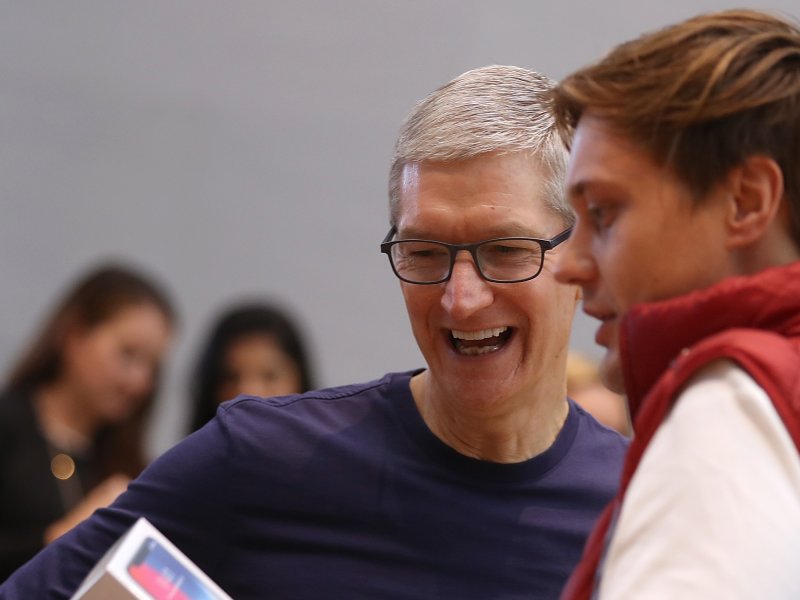- Apple (NASDAQ:AAPL) is building its own screens, according to a report in Bloomberg.
- It's the latest sign that Apple wants to own all the core technologies that go into its products.
- Apple already designs its own processors, programming languages, and GPUs.
Apple is executing on a years-long strategy to own all the core technologies that go into its products.
If it's successful, it could mean that Apple could have a major advantage over Samsung (KS:005930) and other Android phone makers: features they can't copy.
The latest project that Apple is striking out on may be its biggest yet — it wants to design and build its own screen, according to a new report from Bloomberg.
Currently, Apple buys its displays from companies like Samsung. This means that while the parts that go into devices such as the iPhone X are tuned and customized, they are generally available to other companies. For example, other devices including the Samsung Galaxy S9 use OLED displays provided by Samsung.
So Apple has built its own display manufacturing facility in California, according to Bloomberg. This factory is dedicated to building screens using a technology called MicroLED, which is emerging and hasn't yet been used on mainstream products. Apple's hoping to use them on the Apple Watch, and current working MicroLED prototypes are brighter and have a finer level of control over colors, according to the report.
It's sure to be a long and expensive process, but Apple can afford it. Apple currently has 300 engineers on the project, and it won't be ready for mass production for at least three years, and it could get killed before then.
If Apple succeeds, then it will have something that no other smartphone maker can match.
Not the first time
Apple's project to build its own screens is only the latest sign that the company wants to design and own every important part that goes into the iPhone.
This mission started in 2008, when Apple bought a little-known chip company called PA Semi. That technology and team eventually produced a custom Apple processor called the A4, which debuted in the iPad in 2010.
That seems to have worked out — Apple has used its own custom chips in all iPhones and iPads since then, and they've gotten really good. The A11 chip in the latest iPhones may even be faster at some tasks than desktop processors made by Intel (NASDAQ:INTC).
"Apple now finds itself making bets in terms of controlling core components in products," independent Apple analyst Neil Cybart wrote in December, before Apple's display plans were revealed.
It's not just chips and screens. Apple has also designed and owned its fingerprint sensor technology, Touch ID, created its own wireless chip, W1, and recently introduced its own graphics processor, jettisoning Imagination Technologies, which previously provided the technology for iPhone graphics.
It also owns many of the key software and hardware components that are needed to build the True Depth camera used on the iPhone X to securely lock and unlock the device. In 2014, it announced its own programming language, Swift, that can be used to build apps and software for Apple computers.
Apple is also likely to build its own wireless modem chip that will enable its devices to connect to high-speed cellular networks. It's currently in a bitter legal battle with Qualcomm (NASDAQ:QCOM), its previous modem supplier, which many industry observers believe is a prelude to introducing its own modem.
"Apple is moving to the point at which it will have near complete control over every major component powering its device. Whether it is seen in new kinds of displays, smarter cameras, or custom silicon, hardware has a role to play in pushing more intelligent software and services," Cybart continued.
